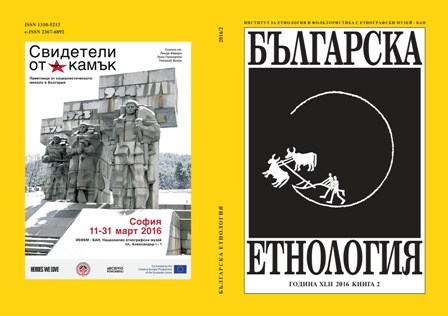
We kindly inform you that, as long as the subject affiliation of our 300.000+ articles is in progress, you might get unsufficient or no results on your third level or second level search. In this case, please broaden your search criteria.

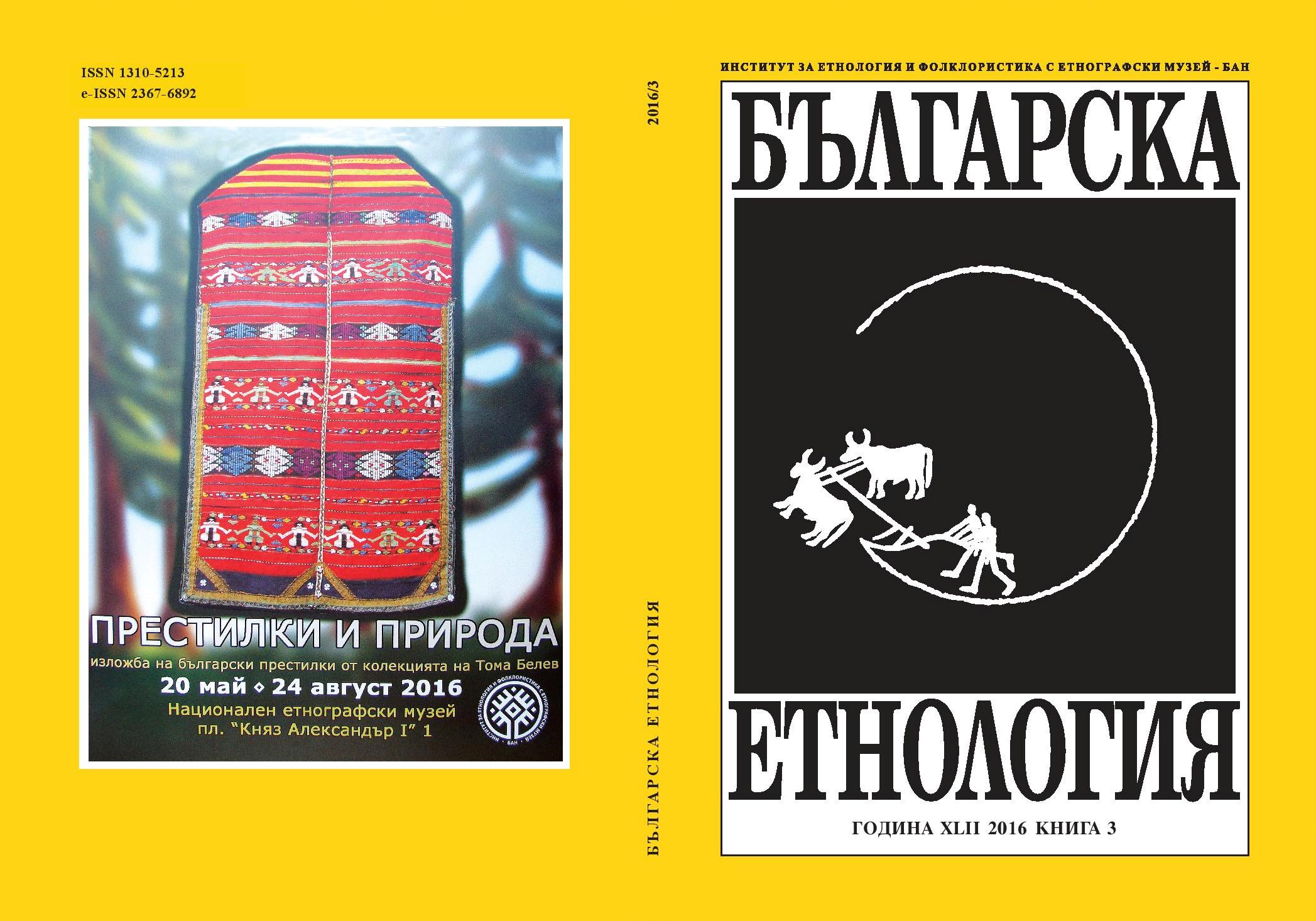
In the last decades, despite some pessimistic prognoses, shamanism is experiencingrevival. In the course of this process, shamans are adapting their practices to theclients’ expectations and new profile; as a result their own traditional view of theБългарска етнология, world is undergoing significant changes. One of the newly-emerged features ofcontemporary shamanism in Buryatia is dividing the inhabitants of the sacred worldinto „prestigious“ and „non-prestigious“ and offering them gifts corresponding tothis new status, all this with the active participation of the shamans themselves. Thearticle presents such practice which the author observed and assumes that there is alsoa process of transmission of respective ideals and values in the sphere of the sacredworld.
More...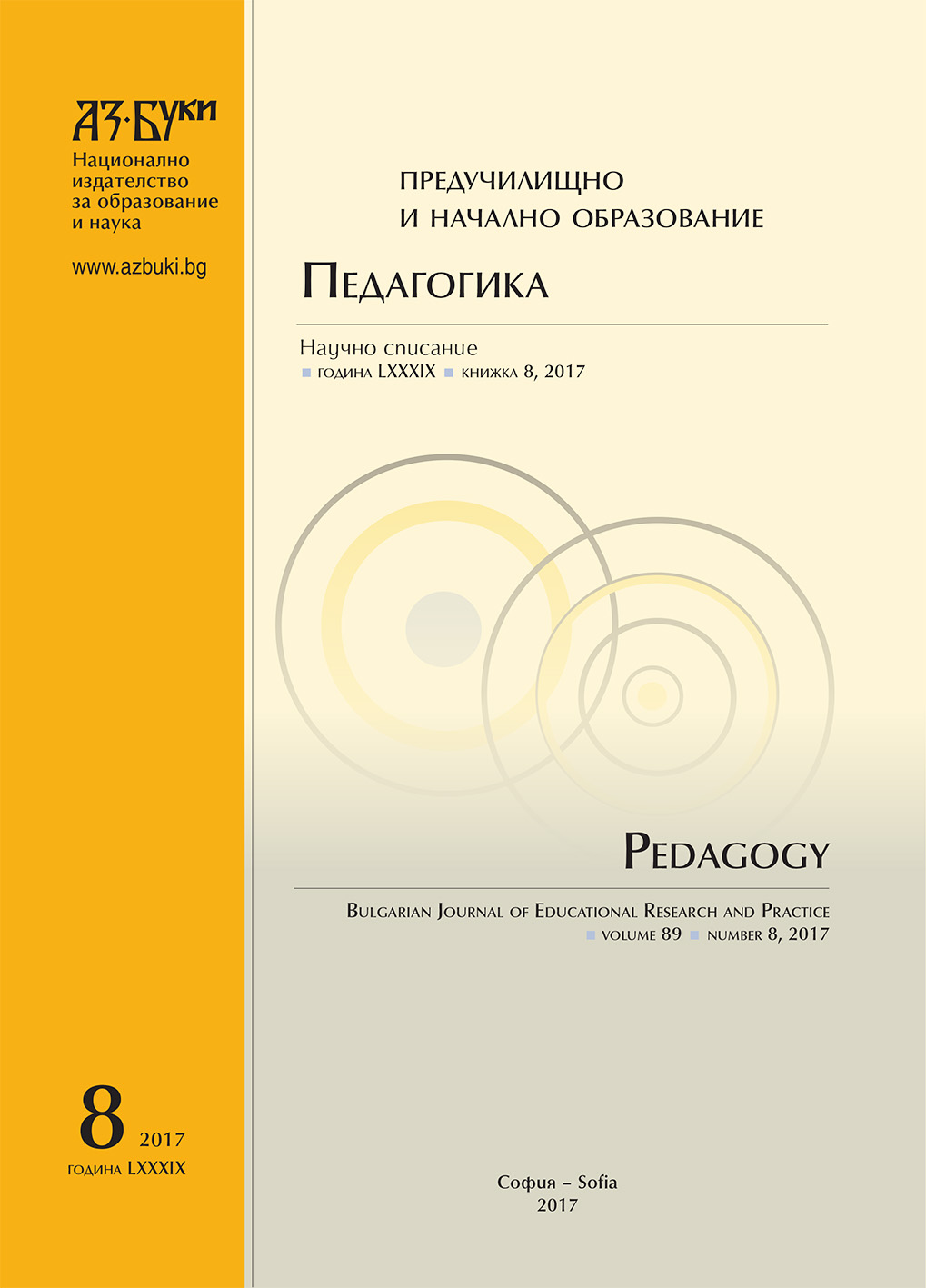
Through the theoretical rationale and the sharing of innovative Pedagogical practice of the circle “The Reading Student, The Reading Child” – University of Veliko Tarnovo, Faculty of Pedagogy proves the possibilities of Non-formal education to turn the reading in elementary school age into a key for harmonious multidimensional building of the child’s personality.
More...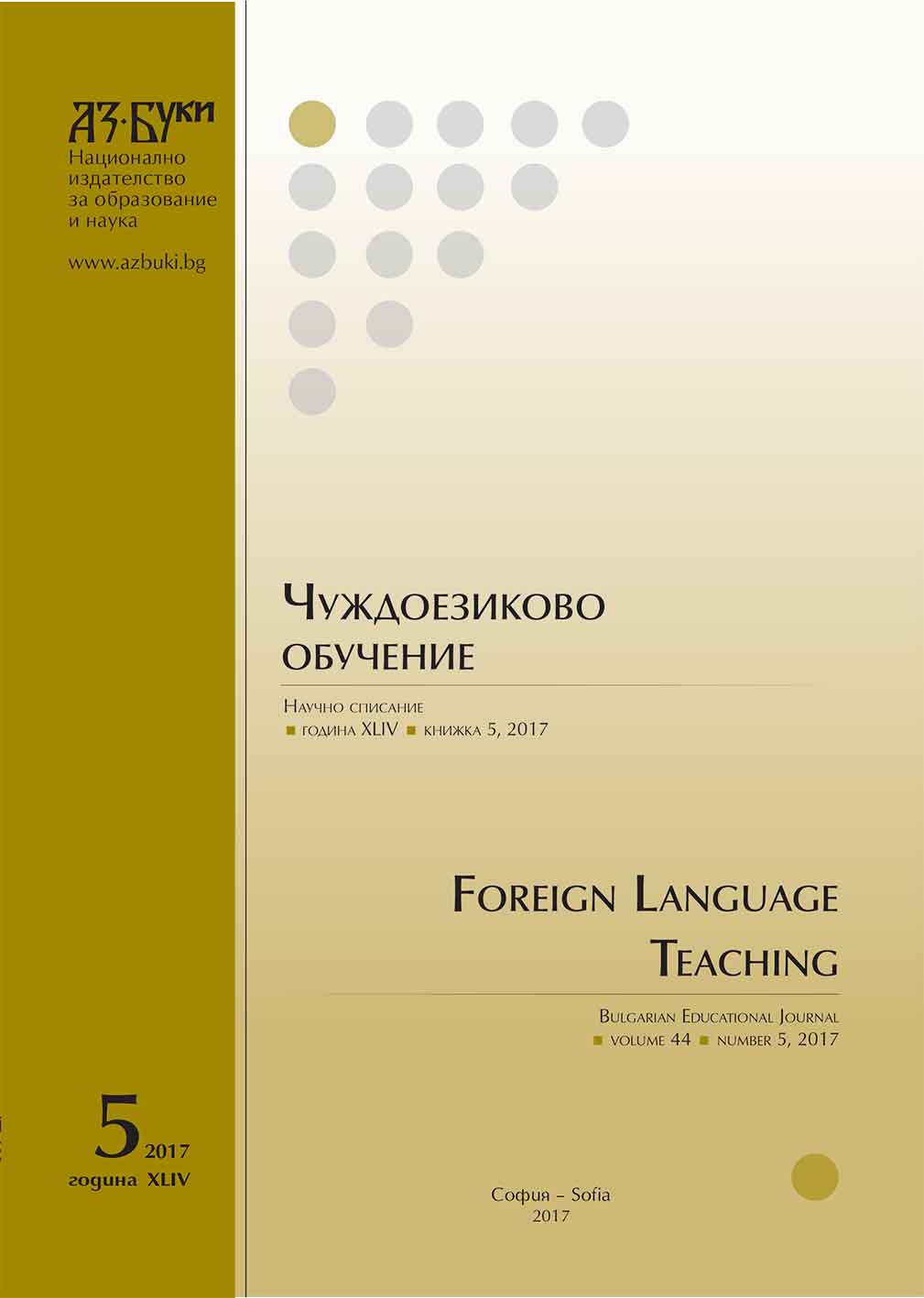
Conversation analysis is an interdisciplinary research programme assuming an innovative theoretical approach and unique methodology. The present article follows its origin in sociology in the 60’s and 70’s of the 20th century, its conceptual grounds and the factors of its formation and consequent development, its gradual and difficult confirmation and its broad application in the close humanities and even in natural sciences. This review outlines the points of contact between conversation analysis and its direct predecessor, ethnomethodology, situates conversation analysis in the field of discourse analysis and mentions its contribution to foreign language teaching.
More...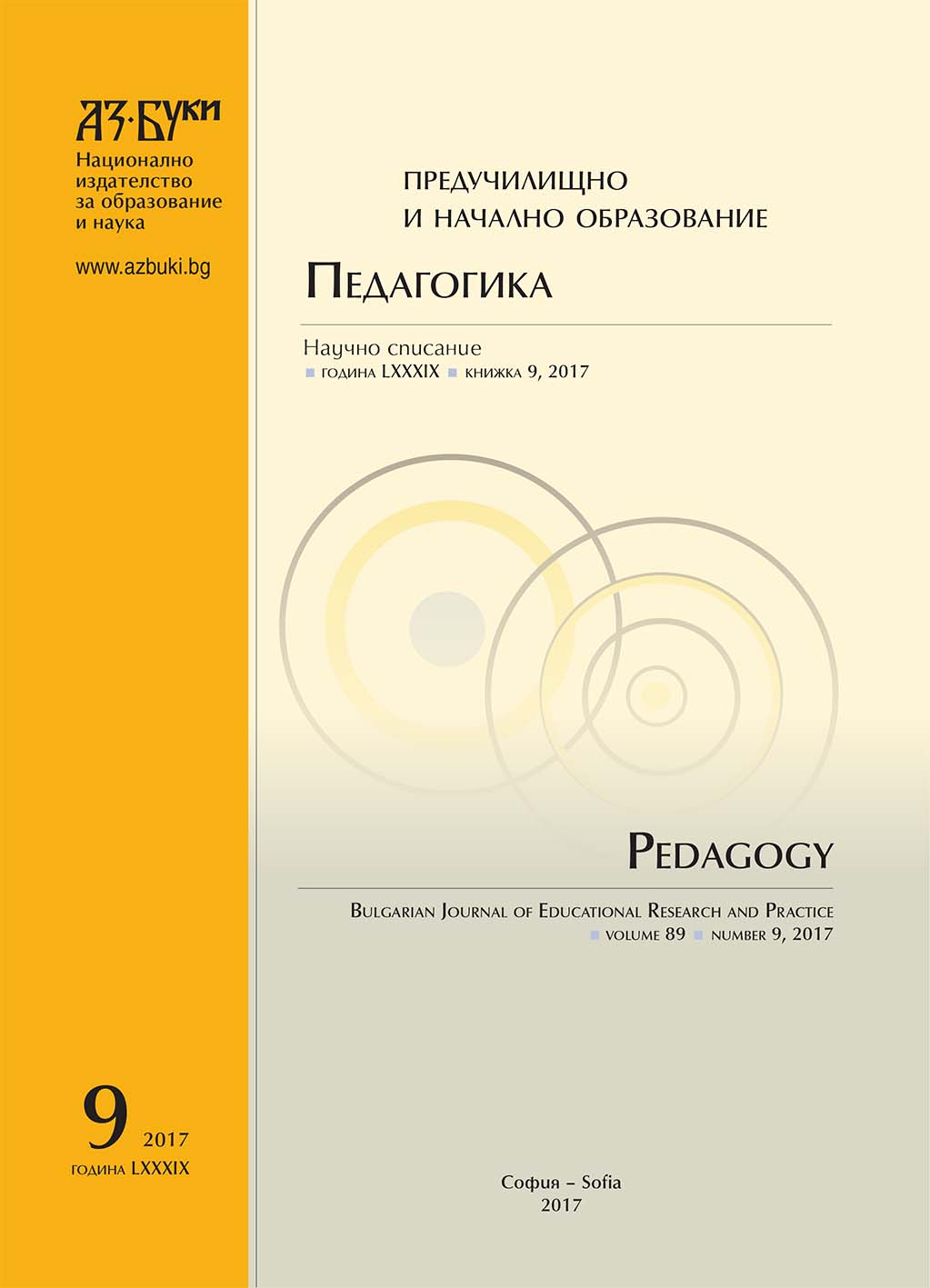
The paper offers a new interpretation on Rousseau in the context of Richard Rorty’s concepts on the philosophy of language and the linguistic turn developed at the end of the 20th century. The classical interpretation of Rousseau’s ideas of freedom in view of upbringing as a rule juxtaposes nature and culture. The present paper argues that this opposition can be overcome through the application of the metaphor approach to both upbringing and the value-neutral character of language. In this sense the question to be answered is how the languages of the teacher and of the student co-exist in Rousseau’s ideas and what the mechanism is that turns these languages into means of upbringing. The research employs arguments in favour of the hypothesis that in terms of the metaphor of “upbringing” created by Rousseau in Emile or on Education, the concepts language of nature and language of society overlap.
More...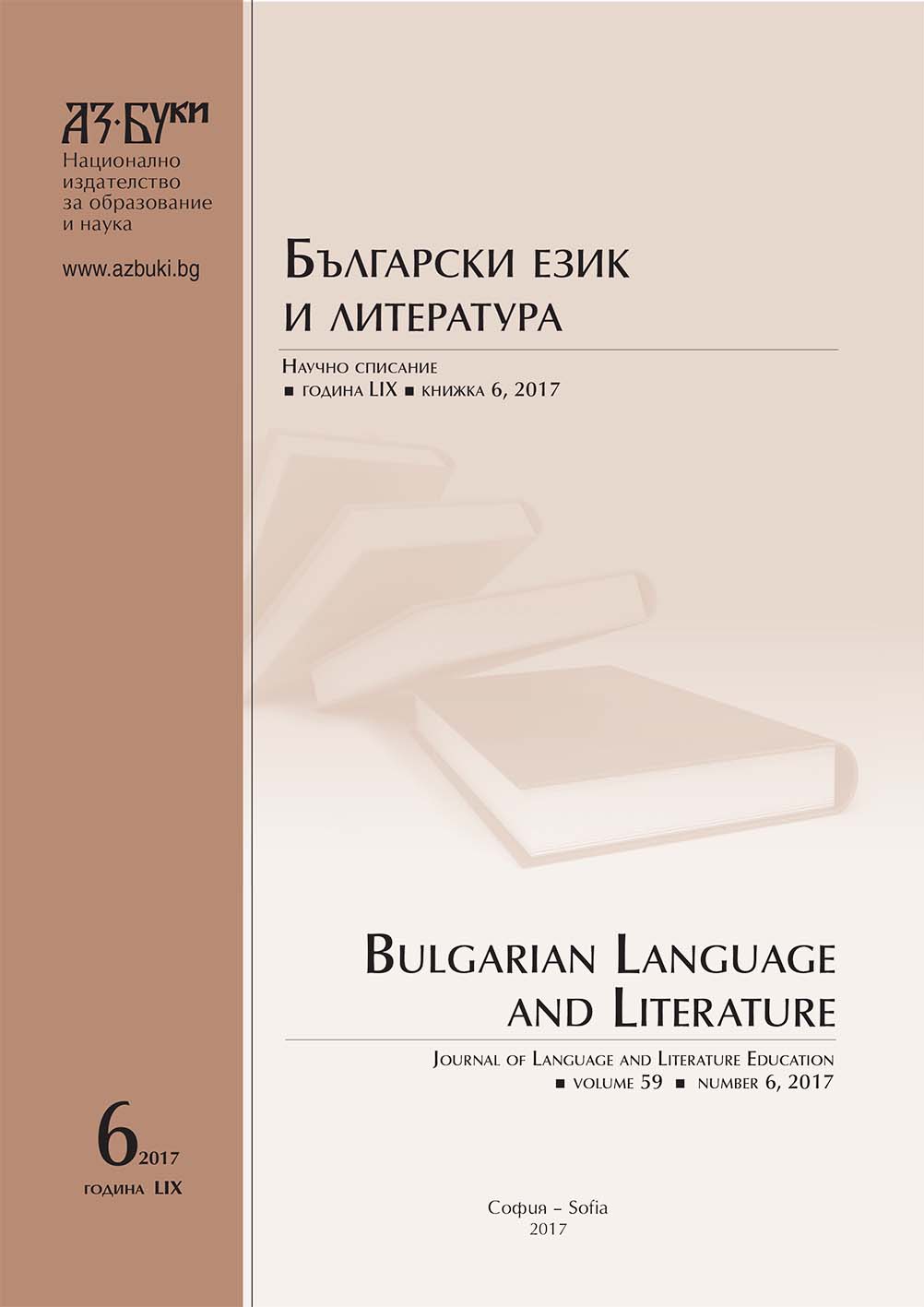
Writing is a main component in second language acquisition. Writing skills are basic and include creating texts, which are assessed acording to the following criteria: content, organization and cohesion, range, register, target language, accuracy of language. The writing task, which results are analysed in this article, is partially constrained by presenting foreign students with initial and final sentences. The students were instructed to write several sentences in between those two which, when taken all together, would form a good text.
More...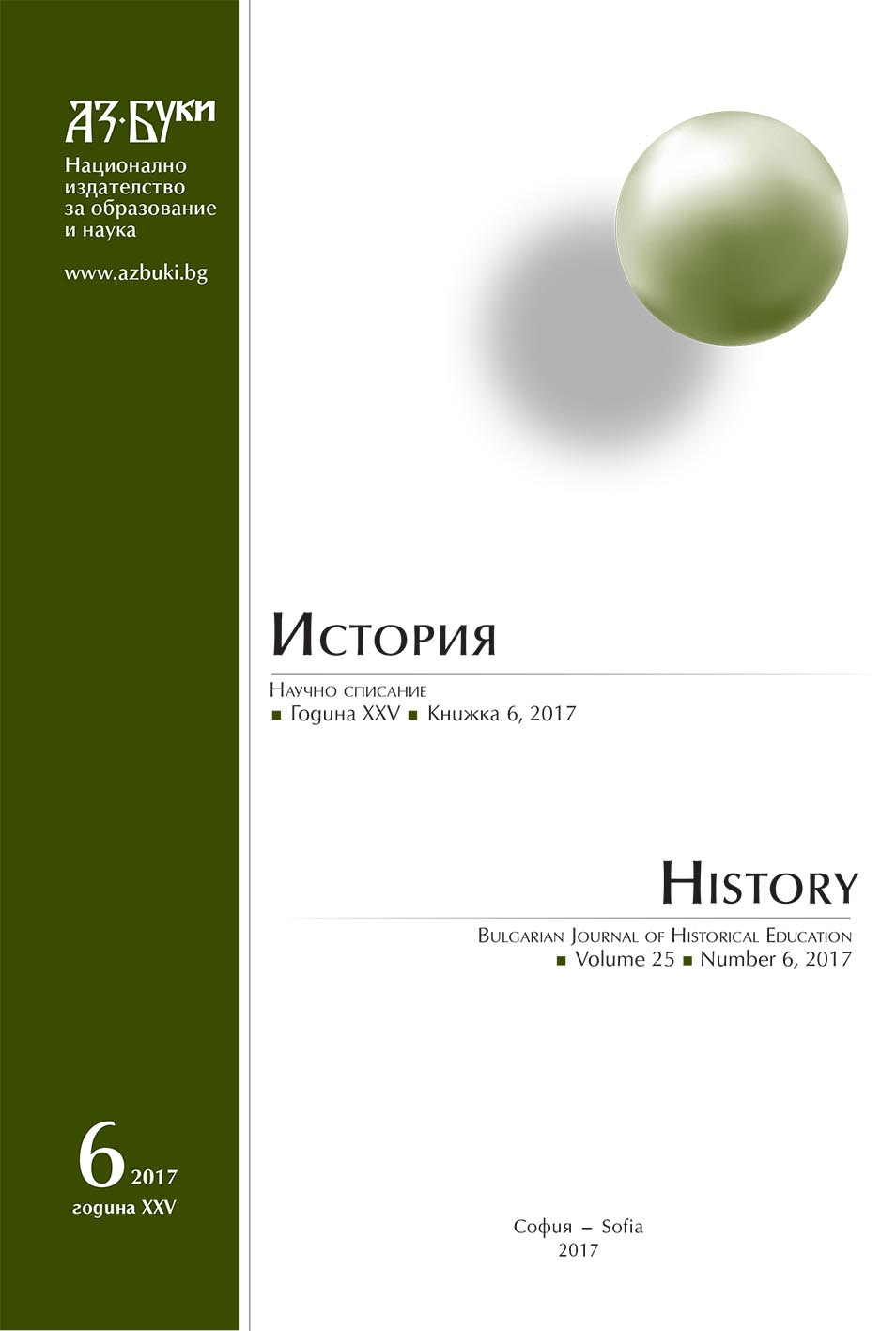
Although belonging to the corporate tradition of the Ottoman Empire, the relationship between patrons and clients continue to play a role in modern Balkan countries. This article presents and analyzes examples of this vertical type of social networks in order to explain some peculiarities of the way in which Bulgarian politics operates in the late nineteenth century.
More...

Political reality often changes human life. It gives opportunity to make unchangeable choice. Life on the border or between two borders sometimes becomes a habitual event. The dynamic transformations in human life are presented through the prism of the personal fate of two significant figures of the Bulgarian public life from the middle of the XX century - Esto Vezenkov and Boyan Mihailov.
More...
The study examines the contributing moments in the scientific work of Assoc. Prof. Vesselin Tepavicharov, DSc., concerning the approaches developed and approached by him for education in a multiethnic environment. Data from a survey conducted in educational institutions in the municipality of Straldja are analyzed.
More...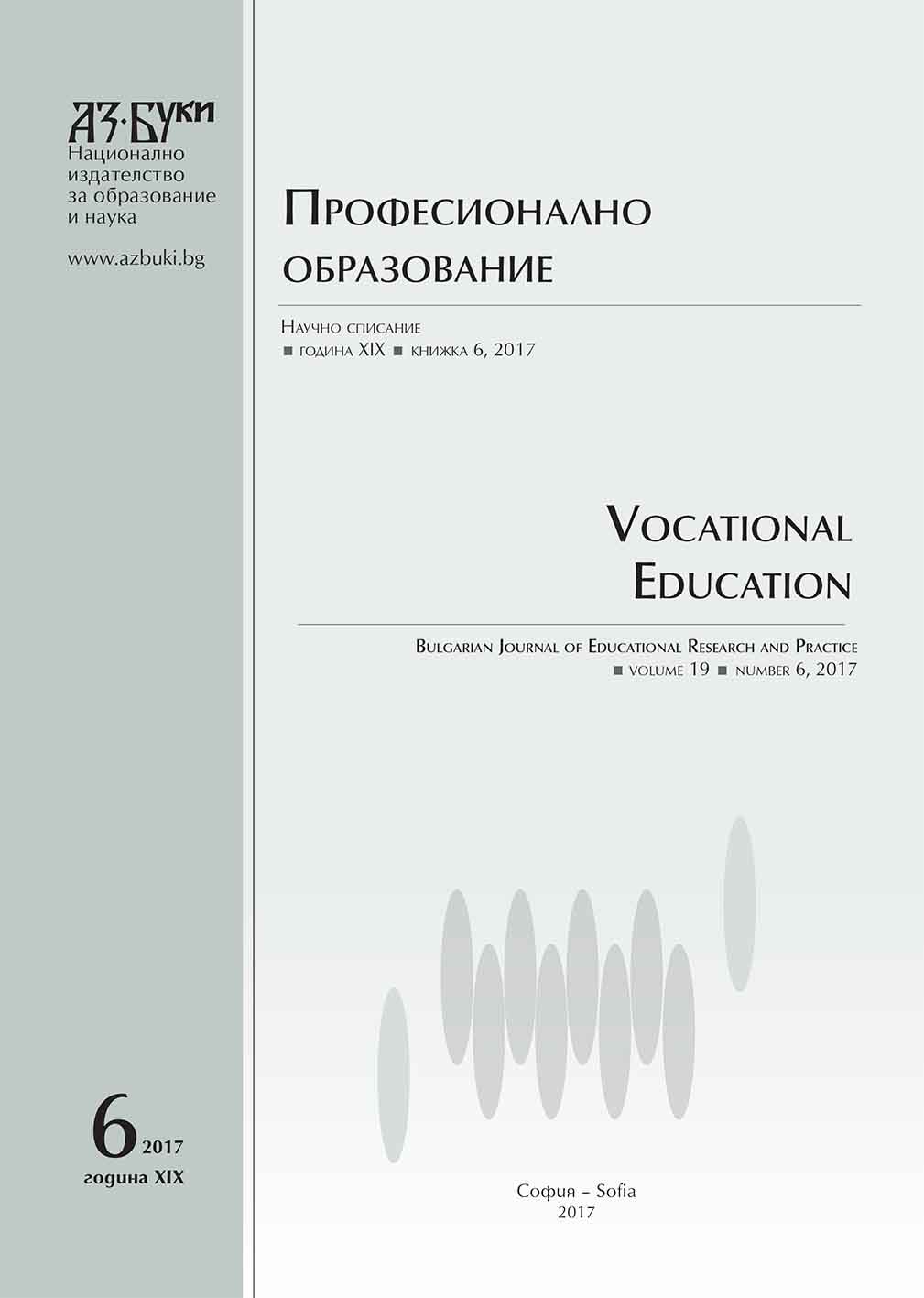
The article sets out to unpack the modes of governance and related policy instruments for steering educational establishments and sport organisations employed by the Sofia municipality Department of Prevention, Integration, Sport and Tourism (DPIST). These instigate a process of institutionalization the actions and behaviours of local schools, kindergartens, sport clubs, youth organisations, and various social groups participating in DPIST funded or supported projects and sport initiatives. Four primary modes of strategic steering are identified including coercion, voluntarism, targeting and framework regulation. The process of steering collective actions, policies and resources is premised on creating a system of institutionalized rules. In fact, such a process takes hybrid forms. The key mechanism for achieving both the strategic and sport policy intentions of Sofia municipality has been the machinery of project management. It is also demonstrated that the pursuit of the new promoted vision envisaging Sofia as a vibrant city of juvenile, active and innovative people where sport, in combination with education, volunteering and entrepreneurship, is seen as the key means and agent of social change, however, requires a proactive forward thinking and strategic approach. It is directed towards pursuing some future, but still unknown desired state in terms of necessary social time, space and projection. Due to this uncertainty Sofia municipality reasonably has relied on a set of already tested in the social practice sources of reasoning and mechanisms of cognitive knowledge and social interventions.
More...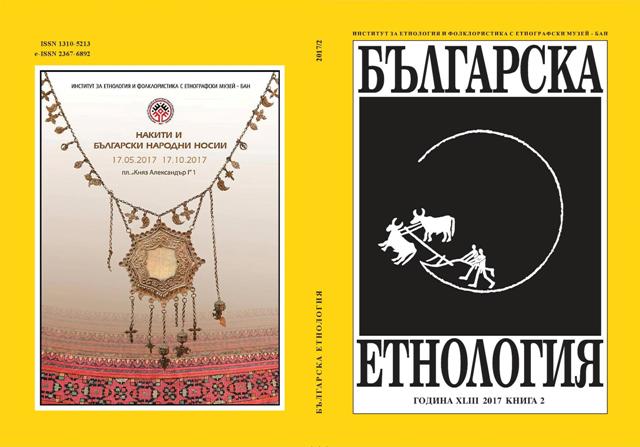

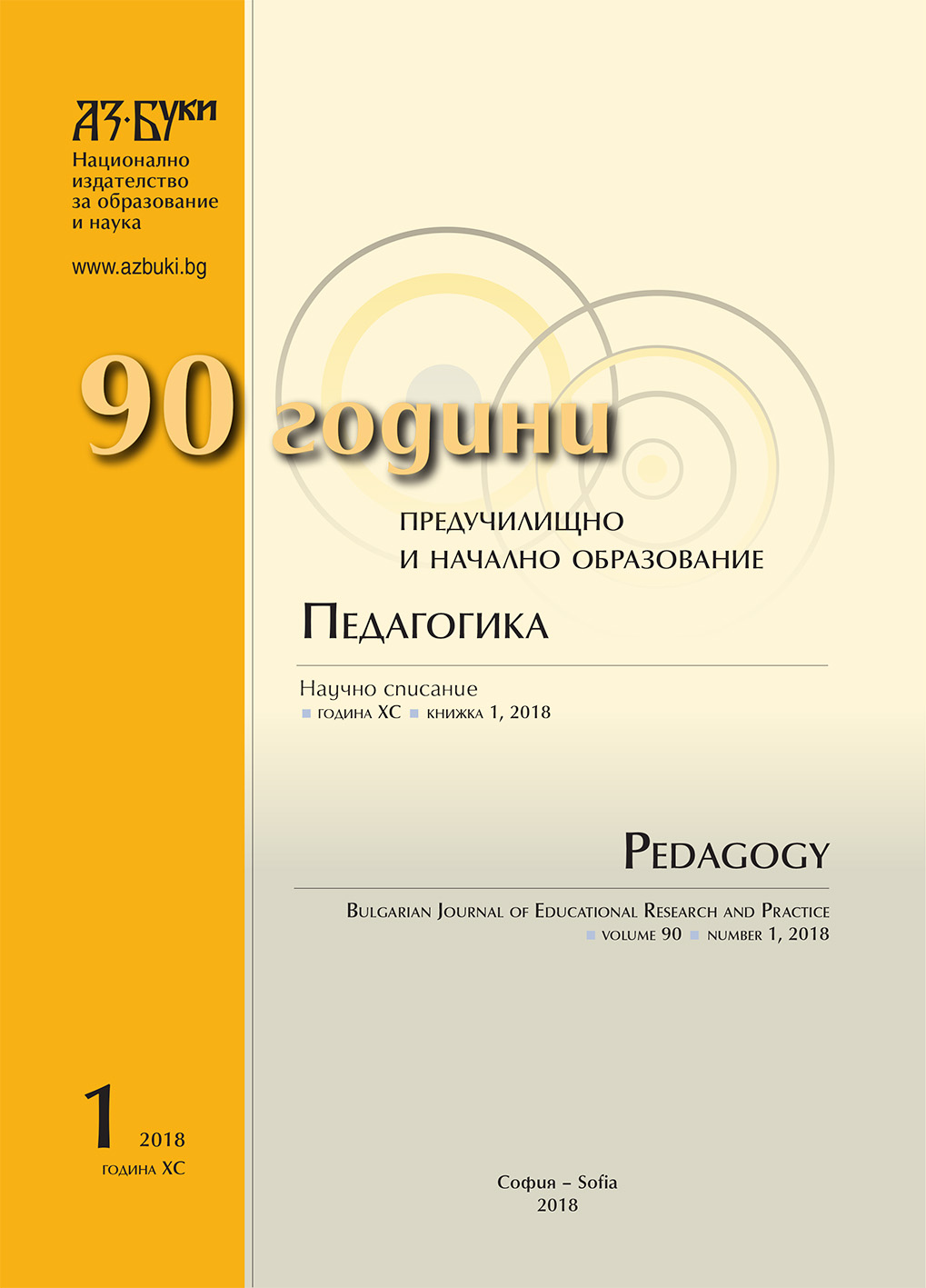
Тhis study aims to present the results of the pilot evaluation of the training system application. The aims is to inform PE teachers and coaches on identifying underlying problems of discrimination, racism and violence, train them on innovative approaches for preventing these phenomena and provide them with educational tools. The training platform is composed by 6 modules that work to prevent incidents of violence, racism and discrimination in sport. The evaluation is done through questionnaires-interviews to 30 mentors. The conducted surveys revealed that the game and the comic present the main messages and mechanisms for tackling incidents of discrimination in sport in an interesting and attractive way. Another key point of the training process has been the self-reflection in relation to the practice carried out by the trainees, as well as the participation and interest that they showed along the entire formation process. The modules in the e-training platform present good practices, documents and programmes in a very accessible and interesting way. They are directed towards development of teachers and coaches’ skills for dealing with accidents of discrimination and violence in informal education in partnership with colleagues, students, parents and specialists in the field of grassroots sports.
More...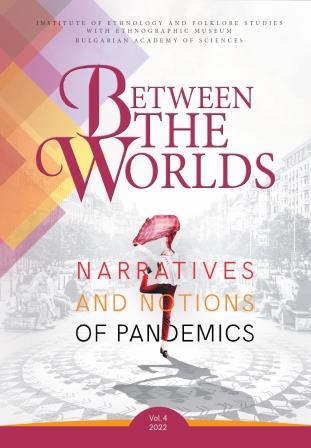
Conspiracy thinking has always been part of our lives, but nowadays, it is almost the default way of understanding the world. When the disease associated with the Severe Acute Respiratory Syndrome Coronavirus 2 (SARS CoV-2) emerged, causes and culprits were sought and found wherever the public imagination perceived a concentration of power and resources. Conspiracy theories about the virus’s origin as a bioweapon, the 5G technology connection, the ongoing plans of a New World Order, or Bill Gates’s scheme to microchip everyone with the COVID-19 vaccines became extremely popular around the globe. The paper discusses the conspiracy ideas and notions of the COVID-19 pandemic on Bulgarian social media, where they circulate in interactive conversational contexts via verbal texts, shared links, or images. It focuses on the local reception and interpretation of globally spread conspiracy narratives and their use to articulate underlying political, social, or public healthcare problems. The Facebook discussions examined here – respectively expressing COVID-19 scepticism (from April 2020) and COVID-19 vaccines/vaccination criticism (from April 2021) – are interpreted as discourses of distrust and perceived corruption in at least three major public spheres: the professional media, the political establishment, and the healthcare system.
More...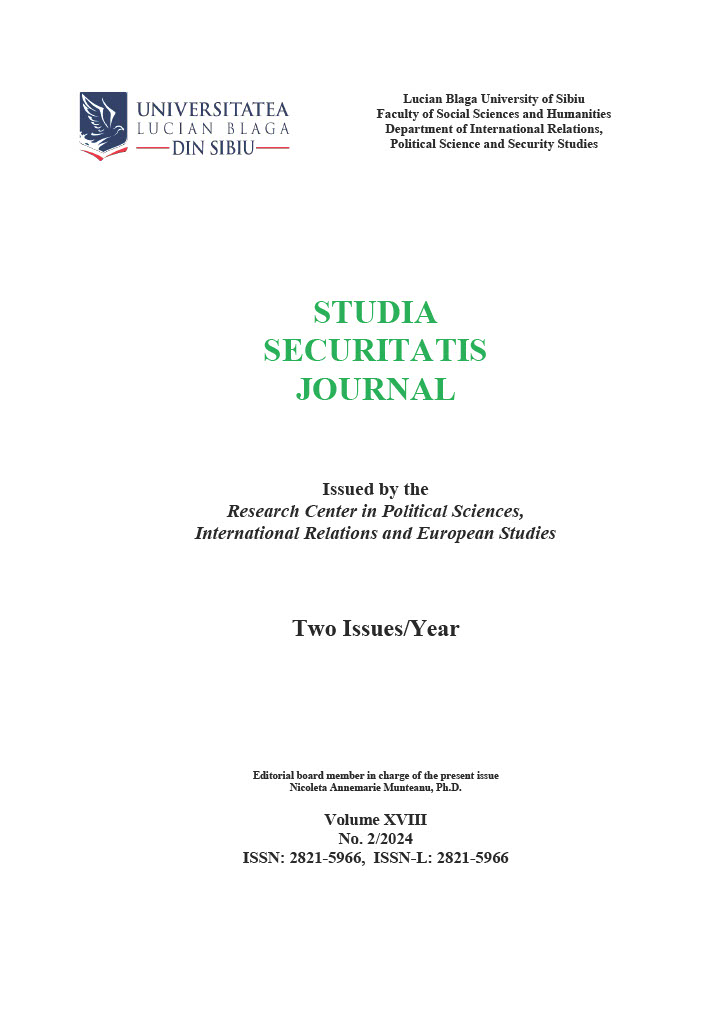
This paper examines strategic communication's important role in countering hybrid threats through early detection, real-time response, and collaboration among government, civil society, and technology sectors. Hybrid threats, such as foreign information interference, disinformation, cyberattacks, and political influence campaigns, present challenges to national security, particularly in the digital age. By fostering societal resilience and enhancing public trust in institutions, strategic communication frameworks are essential to safeguarding national interests. This paper explores how strategic communication frameworks can detect, respond to, and mitigate the impacts of hybrid threats, rapid and coordinated responses. Strategic communication can prevent the spread of disinformation, help build national resilience. By creating collaborative networks and using digital technologies, strategic communication protects national security and underscores their role in safeguarding national resilience. It aligns messaging across agencies, reinforcing government credibility during crises and fostering societal resilience through transparent, accurate information. By engaging with diverse audiences, StratCom adapts messages to influence positive public behaviors and build social cohesion. Additionally, it supports national interests by unifying government and societal efforts under clear objectives, while protecting information channels to secure communication. This proactive, coordinated approach strengthens democratic values and national security against hybrid threats.
More...
This case study, embedded in the theoretical framework of medical populism, investigates how the TVP Info news portal, a public media entity controlled by the ruling party, strategically employed medical populism to cultivate a political community and concurrently legitimize Polish governmental actions amid the COVID-19 pandemic. The research relies on a source analysis of a population of news articles about the pandemic disseminated on TVP Info. The timeframe captures the pandemic during a transition from stringent pandemic measures to a period of eased restrictions, reduced infection rates, and a perceptible shift in focus towards the unfolding war in Ukraine. The study aims to unpack dimensions of medical populism existing in the narratives throughout this critical period. The analysis reveals the strategic deployment of dramatization, common-sense solutions, expertise invocation, and the dichotomy of “us” versus “them”. It underscores the media’s actions to shape public perception and consolidate support for the government’s response to the pandemic. The conclusions drawn from this analysis contribute to enriching the understanding of how medical populism was wielded as a tool for community-building and justification of government actions during a pivotal juncture in recent history of civil disorder.
More...
With the rapid digitalization of government functions, there is an emerging need for strict legal frameworks that will protect the personal data of citizens and guarantee their rights under the GDPR, adapting these provisions into the national legislative system. This legal research discusses how the need for transparency in public administration is weighed against the requirement for the confidentiality of data and how such dynamics impact human security and civil liberties. Considering emerging technologies such as blockchain, artificial intelligence, and automated decision-making systems, the legislative measures at present within the European Union need to be reassessed. This reassessment provides the principles of data minimization, and the legal responsibilities of both the data controller and processor in the public sector, emphasizing strongly the principles of accountability and integrity of data. The paper presented tries to provide an integral vision of data protection and human security in the digital transformation of public administration, a combination of legal and ethical considerations.
More...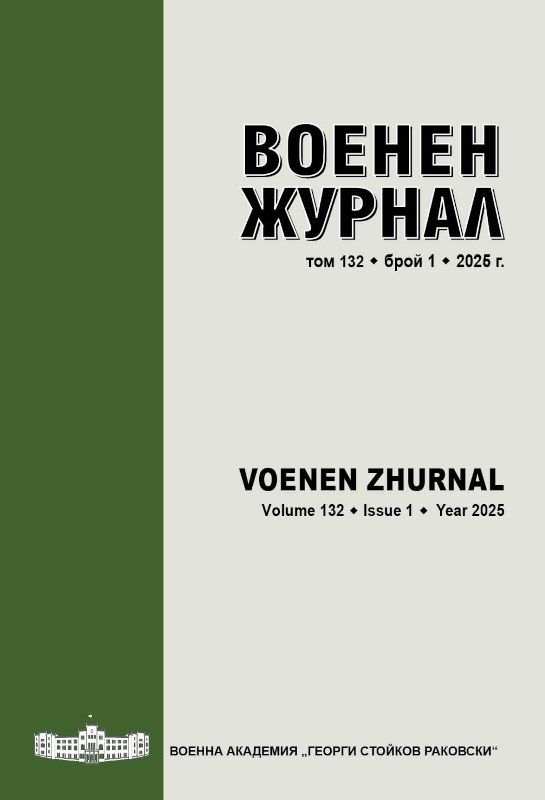
This article examines the critical analysis of public communications during and in the aftermath of terrorist attacks, concentrating on the dual responsibilities of authorities and the media. It seeks to examine the intricacies of communicating information during crises, assessing how strategic communications can mitigate the negative consequences of terrorism on public sentiment and societal stability. This study sheds light on the shifting dynamics between media coverage, public perception and state responses, by conducting a qualitative analysis of case studies and covering historical and recent terrorist attacks. The research emphasizes important obstacles in striking a balance between informed reporting and the potential for sensationalism, highlighting the ethical dilemmas which journalists and politicians face. The findings highlight the need for a refined framework that controls crisis communication, as well as procedures that ensure information sharing is accurate, sensitive, and timely. This study adds to the greater discussion on counterterrorism methods by suggesting actionable norms and ethical standards for crisis reporting, emphasizing the critical significance of good communication in maintaining public trust and resilience. The study not only adds to the academic understanding of crisis communication, but it also provides practical insights into how media and authorities may work together more effectively to combat terrorism.
More...
The digital era has brought us many things to enjoy, shortening the time for most activities undertaken by humans. Technology and digitalization have provided several advantages in education, but also a series of consequences, a flip side of the coin. One of the consequences we can observe in the Romanian educational environment, and not only there, is absenteeism or school dropout. This article aims to explain the practical aspects of this phenomenon, discussing the main causes and anchoring itself in the everyday reality of the educational phenomenon, addressing a topic of great importance for students, parents, and teachers as the main actors, as well as for the entire society that they shape and influence in the future. This phenomenon is not new and has been addressed multiple times in recent decades, and through this article, we want to review newer aspects that theory does not sufficiently pay attention to in the daily life of the triangle formed by students, parents, and teachers. We aim for a serious reflection and a profound problematization of the issues arising from absenteeism and school dropout in society as a whole, focusing on existing solutions and the prevention of this phenomenon.
More...